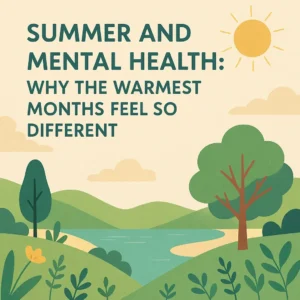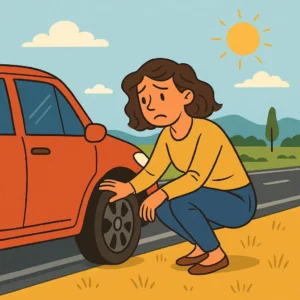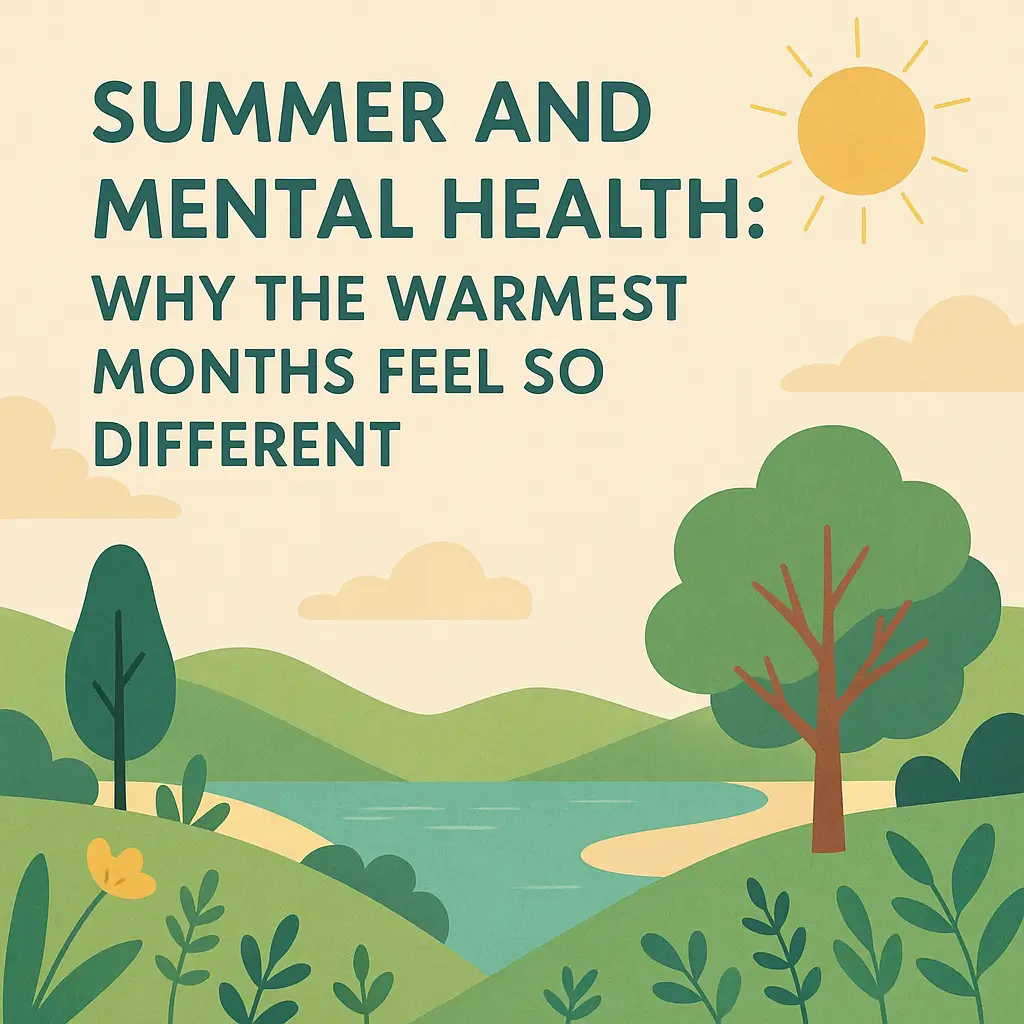My name is Josy (a pseudonym), and I’ve spent years navigating the turbulent waters of Borderline Personality Disorder (BPD). Today, I want to share my personal reflection with you—a story born from my own struggles, growth, and ongoing journey toward healing. I’m sharing this story with a wider audience in hopes that it might offer comfort, guidance, or even just a sense of solidarity to anyone who’s ever felt invalidated, ignored, or hurt despite their best efforts.
The Deep Pain of Invalidation
There are moments when the sting of invalidation feels like a physical blow. I remember one evening after a family dinner, where despite all my careful efforts to use my DBT skills—taking deep breaths, pausing before reacting, and speaking calmly—I still ended up in tears. I had mustered the courage to express that I felt excluded, only to be met with a curt, “There you go again, making everything about yourself.” That remark cut deep, stirring a storm of anger, sadness, and self-doubt.
For someone with BPD, such invalidation isn’t just a minor inconvenience; it’s a trigger that reopens old wounds. It confirms a long-held belief that perhaps my emotions are too much, or that my pain isn’t worthy of attention. The hurt lingers long after the moment passes, and sometimes I find myself questioning if the effort to control my emotions is even worth it.
The Frustration of Doing Everything “Right”
Over the years, I’ve dedicated myself to learning and applying Dialectical Behavior Therapy (DBT) skills. I’ve worked hard on mindfulness, distress tolerance, emotion regulation, and interpersonal effectiveness. Every day, I remind myself that these skills are tools for me—to manage my inner storm, not to change how others behave.
Yet, it’s incredibly disheartening when, despite my commitment, others continue to react in hurtful ways. When I calmly ask for understanding or set a boundary, and I’m met with indifference or even cruelty, it makes me wonder: Why do I still feel so hurt? At times, I feel like my efforts are in vain—like I’m the only one who cares enough to try. But then I remember: these skills were meant to help me, not to force a change in someone else’s behavior.
Embracing Radical Acceptance
One of the most transformative practices I’ve learned is radical acceptance. This isn’t about giving up or condoning hurtful behavior—it’s about acknowledging reality as it is. One night, after an especially painful exchange, I sat alone in my car. Instead of spiraling into anger or self-blame, I closed my eyes and repeated to myself, “I cannot change how others act. I can only change how I respond.”
By accepting that some people simply aren’t capable of offering the validation I crave, I freed myself from the endless cycle of frustration. Radical acceptance allowed me to focus on what I could control: my reactions, my self-care, and my path forward. It was a slow process, one that didn’t erase the pain overnight, but gradually it helped me reclaim a sense of inner peace.
The Art of Setting Boundaries
For a long time, I believed that setting boundaries was a sign of weakness or rejection. I worried that if I set limits, people would abandon me. However, over time I learned that boundaries are not about pushing people away—they’re about protecting the part of me that’s vulnerable.
For instance, when I know a conversation is headed toward invalidation, I now give myself permission to step back. I might say, “I’m not ready to talk about this right now,” or I simply excuse myself from the situation. It’s not an easy thing to do, especially with family or close friends, but it’s essential for my well-being. Setting boundaries is a form of self-respect and a recognition that my feelings deserve care, even if others cannot provide it.
Nurturing Self-Compassion and Self-Validation
One of the hardest lessons I’ve learned is how to be kind to myself. In moments of hurt, my inner critic can be relentless, whispering that I’m too sensitive or that I’m overreacting. I used to internalize the dismissals of others, letting those words become my truth. But now, I practice self-validation—a deliberate act of acknowledging and honoring my own feelings.
After a painful interaction, I often speak to myself as I would a dear friend: “It’s okay to feel this way. Your pain is real, and it matters.” I’ve come to understand that self-compassion is not about self-indulgence but about building a foundation of inner strength. Every time I affirm my right to feel and every time I comfort myself, I reinforce the belief that my emotions are valid. This self-care practice doesn’t erase the hurt, but it does remind me that I’m my own most reliable source of support.
Seeking Safe and Supportive Connections
Isolation can be a heavy burden, and the need for supportive relationships is universal. I’ve learned that while I can’t change everyone’s behavior, I can choose who gets close to me. I actively seek out people who listen without judgment and who validate my experiences. Sometimes, that means finding solace in a supportive friend or joining a group where others share similar struggles.
I’ve also learned that it’s okay to let go of relationships that consistently drain my energy. It’s not about punishing others but about preserving my well-being. When someone’s responses repeatedly leave me feeling diminished, I remind myself that their inability to validate me is a reflection of their own limitations—not my worth. Cultivating a network of compassionate, understanding individuals has been one of the most rewarding aspects of my journey.
Learning to Trust My Inner Resilience
Living with BPD means facing constant emotional challenges, and sometimes the world feels relentlessly harsh. Yet, every time I navigate through a painful encounter, I discover a bit more about my resilience. The skills I’ve honed through DBT have not only helped me manage crises—they’ve helped me build a life that, while imperfect, is filled with growth and strength.
There have been days when the emotional wounds feel overwhelming, days when invalidation leaves a raw, open scar. On those days, I lean into the truth that my strength isn’t defined by the absence of pain but by my capacity to endure and rise again. My journey has taught me that every setback is an opportunity for deeper self-discovery, and every moment of self-compassion builds the resilience I need to face tomorrow.
A Message of Hope and Empowerment
To anyone reading this who has felt the sting of being ignored, invalidated, or hurt—even when you’ve been trying your hardest—I want you to know that your feelings are valid. You’re not alone in your struggle. It’s incredibly painful when the world around you seems unwilling or unable to understand your inner turmoil. But remember, the work you do on yourself, the skills you cultivate, and the boundaries you set are all testaments to your inherent worth and strength.
I share my story not to boast about my progress but to remind you that growth is a journey. It’s okay to have setbacks. It’s okay to feel deeply, even when it hurts. And it’s okay to seek help—whether that means reaching out to a trusted friend, joining a support group, or speaking with a therapist. Sometimes, the most courageous act is to acknowledge that you need care, and to then take steps to receive it.
My name is Josy, and I chose to share this reflection with a wider audience because I believe in the power of connection. By opening up about my own struggles and triumphs, I hope to create a space where you feel seen and understood. You deserve compassion—from others and, most importantly, from yourself. Each time you practice self-validation, set healthy boundaries, or choose radical acceptance, you honor the brave, resilient person you are.
Even on the hardest days, when the weight of invalidation feels unbearable, remember that you are more than the sum of others’ dismissive words. You are a survivor, a warrior, and a beacon of hope for your own life and perhaps for someone else’s too. Keep embracing your journey, keep honoring your progress, and most importantly, keep being kind to yourself.
In sharing my story, I hope you see that the path to healing is paved with both struggles and small victories. Trust in your own strength and know that every DBT skill practiced is a step toward reclaiming your power. And even when others fall short in understanding, you have the profound ability to care for yourself and to grow beyond the pain.
Thank you for taking the time to read my story. May it serve as a reminder that you are never alone in your journey, and that your efforts to nurture your emotional well-being are a testament to your remarkable resilience.















